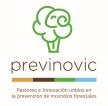Operational Group: Application of new technologies to reduce the carbon footprint in intensive horticultural farms in Galicia
- Type Operational group
- Execution 2016
- Assigned Budget 6.000,00 €
- Scope Autonómico
- Autonomous community Galicia
- Main source of financing CAP 2014-2020
This Operational Group was created with the goal of utilizing renewable energy and alternative technologies that lead to reduced energy costs and improved productivity, provided that the investments are affordable for farms and increase their profitability. This requires the use of renewable energy sources that increase greenhouse productivity and reduce the carbon footprint.
Depending on the innovative approach, an alternative approach will be used: heated air, both in the soil and in the greenhouse air, will be used for temperature control using a renewable energy system combining geothermal and photovoltaic energy, improving farm income by allowing for winter vegetable production while maintaining a low-carbon economy.
To maintain production during the months with lower solar intensity and improve competitiveness, new solar self-illumination technologies with an optimal color range and low consumption will be used. To reduce the need for phytosanitary products, soil disinfection will be carried out using variable-intensity ozone infiltration and treatments against fungi and bacteria using germicidal light, which can be either static or dynamic. To reduce the consumption of synthetic fertilizers, ionized water will be used to accelerate the availability of nutrients from the organic fraction of the soil, improving fertilizer management on farms.
This Operational Group was created with the aim of using renewable energies and alternative technologies that lead to a reduction in energy costs and an improvement in productivity, provided that the investments are affordable for the farms and increase their profitability. To do this, it is necessary to use renewable energies that increase the productivity of the greenhouses and reduce the carbon footprint.
Depending on the innovative action, an alternative will be used: for temperature control, heated air will be used, both in the soil and in the greenhouse air, with a mixed renewable energy system of geothermal and photovoltaic energy, improving the farm's income by allowing the production of vegetables in the winter while maintaining a low-carbon economy; to maintain the productive rhythm in the months of less solar incidence and improve competitiveness, new solar self-illumination technologies with an optimal chromatic range and low consumption will be used; to reduce phytosanitary products, soil disinfection will be carried out by infiltration of ozone of variable intensity and treatments against fungi and bacteria by means of germicidal light that could be either static or dynamic; to reduce the consumption of synthetic fertilizers, ionized water will be used in order to accelerate the availability of nutrients from the organic fraction of the soil, improving fertilizer management on farms.
- Coordinator/entity name: AGACA Cooperative Union
- Coordinator/entity email: agaca@agaca.coop
- Unión de cooperativas AGACA







